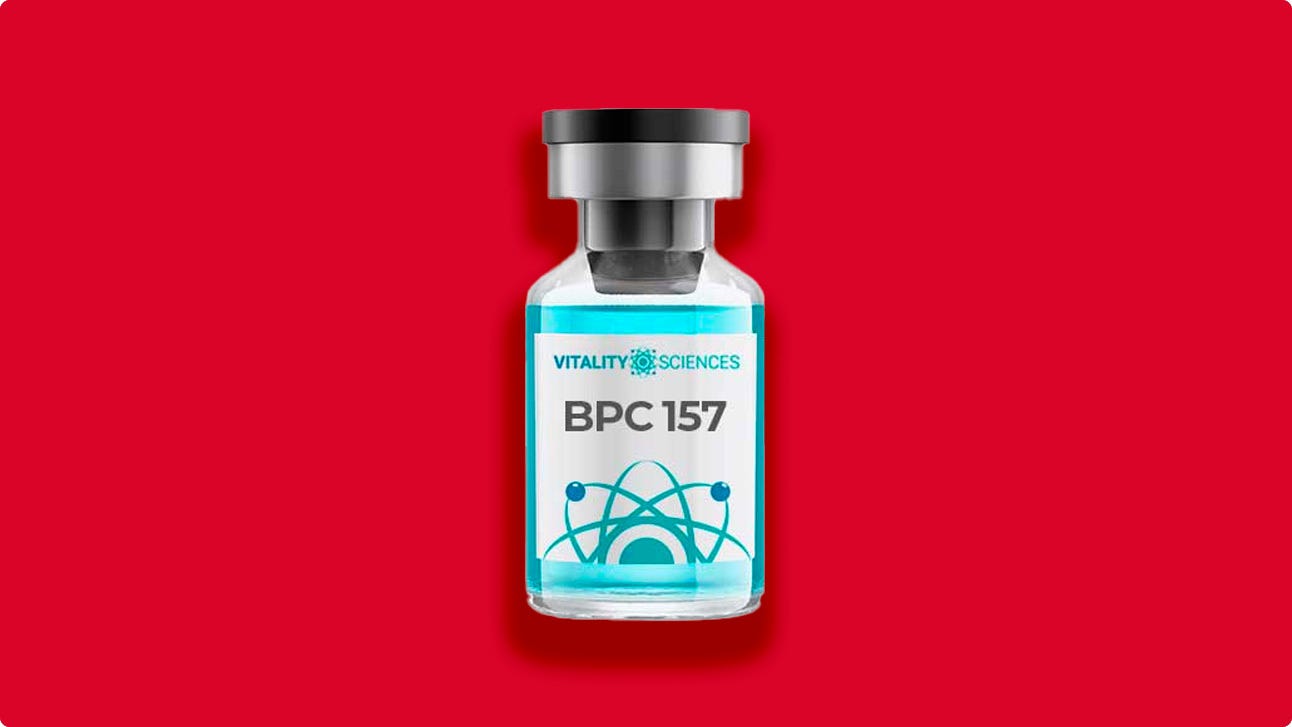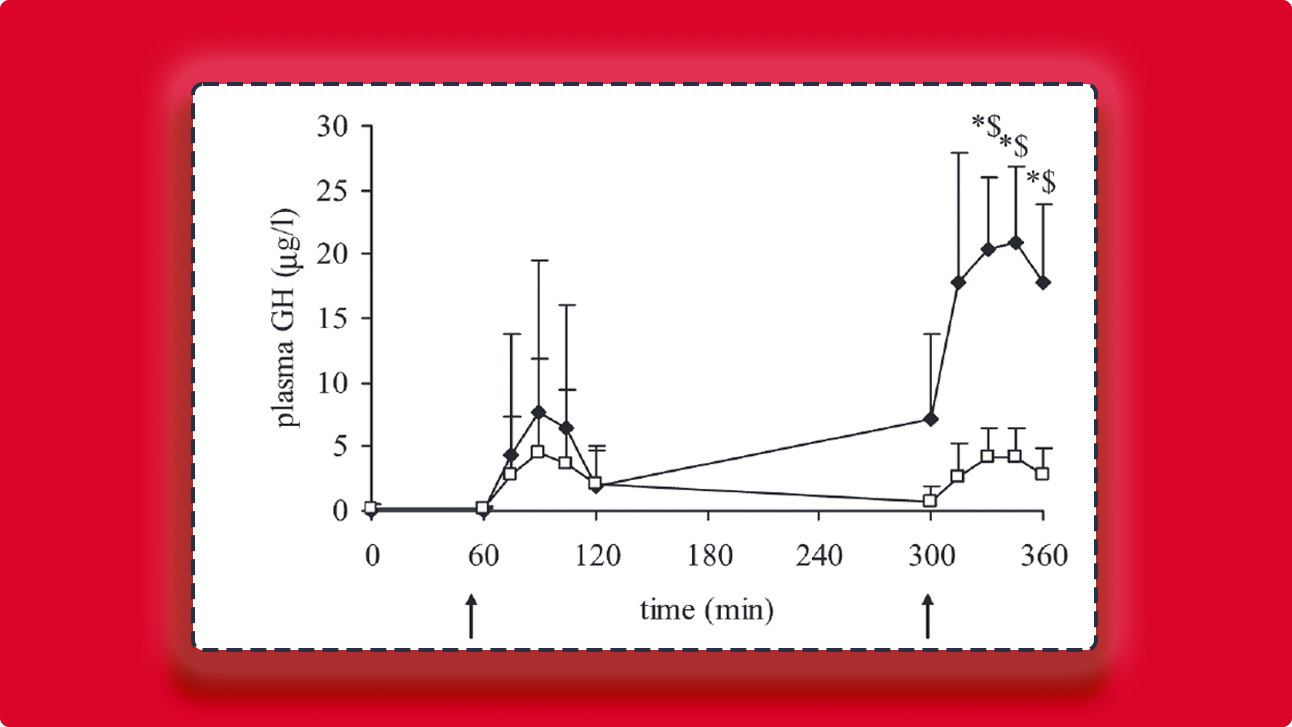BPC-157: Wonder Drug or Silent Killer?
Exploring the science behind social media's hottest pharmacologic
Top of the morning, Common Sense Medicine subscriber (I’ll have to get a better name for it). Welcome to another version of Chad vs. Trad Health, where we try to explore the latest and greatest in longevity science.
We’ve officially made it to the area called “post-new-years” doldrums, where we snap back to reality and half of the people who decided to “work out more” stop coming to the gym. For those of us who continue going to the gym, congratulations and happy new year!
In the ever-evolving landscape of health and wellness, the divide between unconventional (Chad Health) and conventional (Trad, or traditional Health) approaches often appears vast. Think Sol Brah, Bryan Johnson vs. Peter Attia. Biohackers vs. Physicians. Yet, there are intriguing elements that straddle this divide, inviting interest from both worlds.
This week, I’m spotlighting BPC-157, a peptide that has shown promising potential for promoting healing and reducing inflammation in various tissues and organs.
Other items on the differential:
Longevity tactics which I’m excited about
Figure of the week
Literature which I’m perusing
THE WEEKLY DOSE
BPC-157 is the new fad. What does it mean for you?
BPC-157 is the new kid on the block, with exploding social media interest in its’ healing properties (i.e., neuroprotection, pain relief, and dopaminergic repair). Having been banned by the World Anti-Doping Agency (WADA) for athletes and banned from being compounded by the FDA, citing the “risk of immunogenicity, peptide-related impurities, and limited safety-related information,” it’s a pretty contentious debate between Trad Health and Chad Health about what to do about this particular compound. This newsletter is helping you figure out the latest and greatest in longevity science, so let’s discuss the benefits and the harms of taking BPC-157.
BPC-157 works through an unknown mechanism but promotes growth
BPC (body protective compound) 157 is a pentadecapeptide (15 amino acids)—which means that it’s a fragment of a protein. It’s derived from a protein in gastric juice and it’s useful for maintaining the health of the gastrointestinal (GI) tract lining. In clinical practice, people have been using it in “research use only” for anything from anti-aging to healing injuries. As it’s not dissolved in the stomach, it’s highly stable, resistant to hydrolysis or enzyme digestion, and easily dissolved in water.
The mechanism of action of this peptide is still not clearly understood, and it’s suggested to be due to an upregulation of growth factors, angiogenic effects through stimulation of vascular endothelial growth factor (VEGF), and modulation of nitric oxide synthesis. To be clear, though, these studies are mostly in vitro, and none of these functions have been proven experimentally in vivo.
A lot of people have been using BPC-157 as a way to heal quickly after an injury, but are they putting themselves at an undue risk if they’re trying to dose it too high or worse, taking it prophylactically?
Chads think that it’s the magic wolverine peptide
From the Chad Health viewpoint, BPC 157 is a rising star. I did a quick search on X and found so many accounts extolling its’ virtues, even going so far as to say that it’s the “wolverine peptide,” having seen its’ effects on healing.
The BowTied Biohacker’s experience showed that he has success in repairing his gut, dopaminergic system, mild chronic injuries, aches, and back pains with oral BPC-157, with an oral supplementation of 1-1.3 mcg QD (per day). For more serious injuries, he’s deployed injectable BPC-157 at 500 mcg QD. Other biohackers like the BowTied Neuron have tried the same dosing, 500 mcg BID (2x/day) and have found that he had more stable moods, impeccable gut health, and improved functioning in a knee with prior surgery.
Personally, I couldn’t find any evidence which supported such a high dose orally (I think they’re imputing from the pharmacokinetics that such a dose is efficacious), but I found one study which mentioned a protocol for a 200 mcg QD injectable dose for 7 days. Nevertheless, Chad Health enthusiasts continue to extol its’ virtues.
Trad Health enthusiasts are wary because there are no human trials yet
Many doctors are still sour on BPC-157. There’s a lot of reasons for this. Currently, there are no human trials and very few human-based studies (I could only find one retrospective study). The one study which is evaluated is of a very low sample size (n=16) and it showed that there is significant improvement in knee pain, but it’s hard to gain anything from this. One orthopedic physician, Dr. Chris Centeno, mentioned that since this drug is in a very gray zone, and that it is squarely in a “wild west” of drug sales. He also mentions that according to the animal studies which have shown tenocyte proliferation, PRP and BPC-157 showed equivalent healing. Most importantly, between BPC-157 and PRP, the former has no human clinical data randomized controlled trials (RCTs) to evaluate its’ efficacy.
In a podcast with Dr. Peter Attia and Derek (from the popular health blog “More Plates More Dates,”), Derek mentions while he would love to have a RCT its pretty much impossible to guarantee (at 3 hours 12 minutes in). If you’re sold on BPC-157, try to make sure to get it from a verified source. Since it’s not FDA approved, you may have to do your own research to make sure that every batch is 3rd party tested to ensure purity and proper dosages.
Conclusion: What do I think?
I am squarely in the camp of not using this for prophylactic benefit. If there is any evidence in human trials which shows that BPC-157 is safe to use in healthy adults, please let me know by replying to this email! I’m trying to understand more about this space, and it’s fascinating to learn more about what is going on in the space. While this may not be standard practice now, I’m excited to learn more about how we can push our knowledge of physiology to the limits.
THE PRESCRIPTION
Get your T fix: Dr. Peter Attia had Dr. Mohit Khera on his podcast to discuss men’s sexual health and the pros & cons of testosterone.
Lift some weights: Check out Andrew Huberman’s foundational fitness protocol if you’re having information overload and don’t know where to start.
oMg: Getting magnesium is hard, but Magtein makes it easy—if you’re deficient, Jennifer Gu from AIDP explains why it could be beneficial for you.
FIGURE OF THE WEEK
The upshot: Serum growth hormone (GH) concentrations increase 3x by doing 2, 30-second sprints, after ingestion of nicotinic acid. (represented by the arrows).
Full Caption: Serum growth hormone (GH) concentrations at rest and during recovery from sprint 1 and sprint 2 (represented by arrows) in the NA (closed symbols) and Con (open symbols) trials. Data presented are means (SD); n = 7 subjects. * Significantly different from pre-exercise. Significantly different from the corresponding time point in the Con trial. (Source)
JOURNAL CLUB
Forget-me-not: Dasatinib & Quercetin did not meaningfully or significantly improve cognition, brain/hippocampal volume, and did not meaningfully improve Alzheimer’s Disease biomarkers.
Gettin’ aggro: Use of testosterone in hypogonadal men increased fracture incidence in the treatment arm when compared to placebo.
Protein, Slow-tein: Slowing protein absorption can increase the maximum potential for protein utilization from a single meal.
REMEMBER, IT’S JUST COMMON SENSE.
Thanks so much for reading! Let me know what you thought by replying to this email.
See you next week,
Shree (@shree_nadkarni)










Really intriguing take on BPC-157 — it’s fascinating (and a bit unsettling) how something marketed as a “wonder drug” can carry such silent complexities. Sometimes I wonder if the rush to biohack our bodies is outpacing our understanding of long-term consequences. Is it healing… or just hiding symptoms temporarily? 🤔
https://www.holyquranclasses.com/female-quran-teachers.html
Was using injectable BPC-157 for the purpose of gut healing ( diagnosed with multiple food intolerance and leaky gut), in within 1 month all my GI symptoms greatly improved , and even my diet is still not completely free from the products I am intolerant to, no negative GI symptoms were observed so far ( but without BPC -157 - all my symptoms- gut bloating, severe skin rashes, unexplainable skin acne , constipation - all of these would immediately re-appear in case of eating foods I was found to be intolerant to, like gluten or dairy). Using BPC-157 for ~ 3 months , feeling much better as well with my chronic back pain.